Browse through our library of informative resources to stay informed and inspired

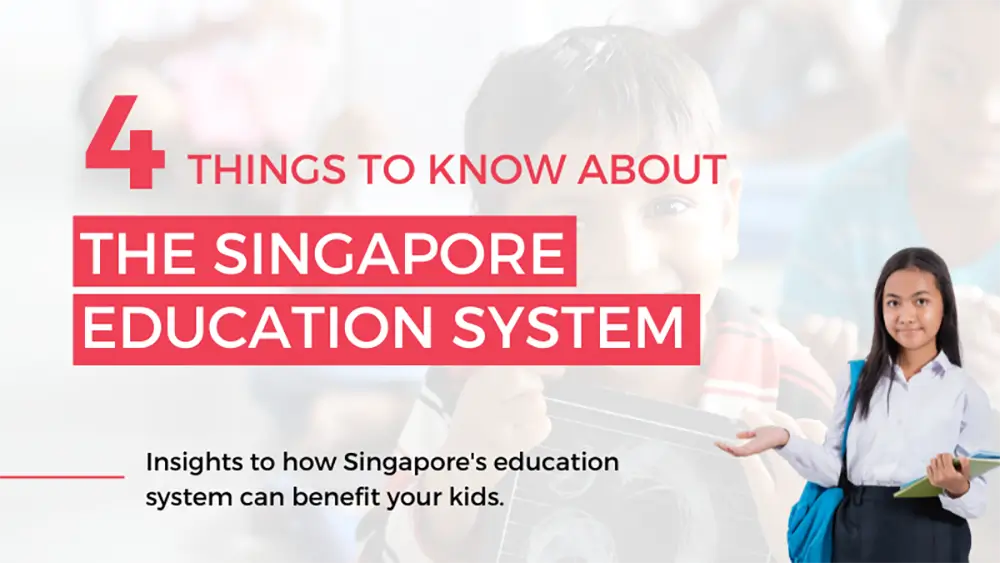
Deciding to settle in Singapore as a permanent resident or expat is already a significant decision — what more, in choosing a good school for your kids to study in?
You probably know about Singapore’s education system and wonder if it would fit your child well.
Singapore education has frequently been hailed as among the best globally. News sites have consistently placed Singapore as a top hub for education, besting other developed countries such as Finland, Canada, Sweden, France, Belgium, etc.
But understanding the quality of education in Singapore is only half the battle won. There’s still the matter of individual preferences and your child’s educational needs. In this case, exploring all possibilities is crucial in making an informed decision.
Knowing academic expectations early on for your child can help smoothen out the process as you go through your relocation journey. Here’s a guide to help you out.
While it is primarily hailed as having some of the world’s highest living standards, Singapore is also one of the most prized educational destinations. It is unsurprising to find Singapore universities mentioned in the same breath as Harvard and Stanford.
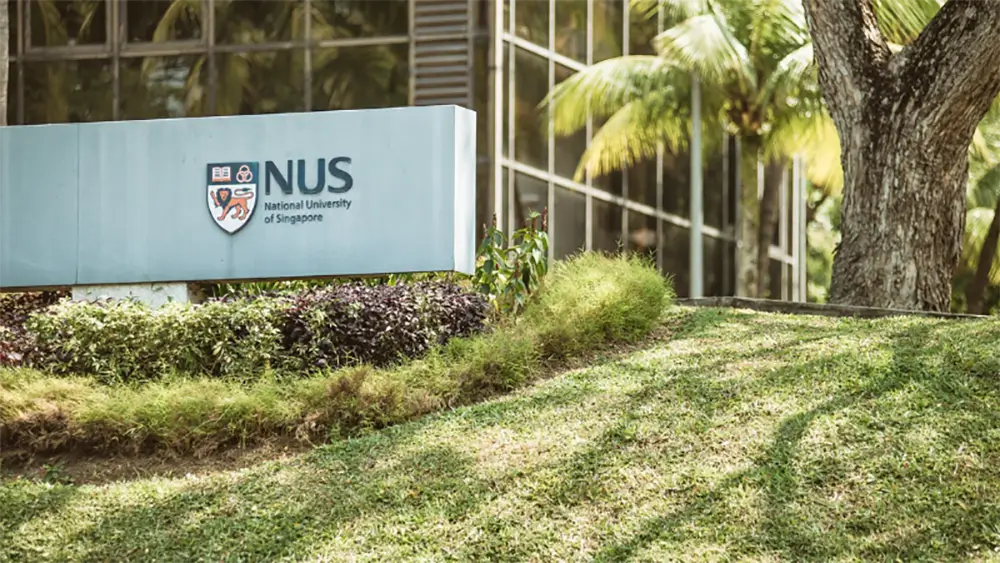
One of the top universities in the world, the National University of Singapore (NUS) | NUS News
Singapore is often in the top five in rankings from the OECD (Organisation for Economic Co-operation and Development). Its Maths and Sciences curricula are its crowning glories, outperforming such countries as Japan, Taiwan, and other developed cities.
Suppose you want to get to the bottom of why Singapore’s education system is so good. In that case, you must trace back decades of history lessons and understand socio-economic factors and government policies that ensure the best academic instruction.
But in the spirit of keeping things concise and relevant, we will only cover relevant topics about how your child can comfortably fit into the mould of Singapore education.
The Ministry of Education (MOE), the governing body responsible for formulating and implementing educational policies and outcomes in Singapore, has a unique educational approach.
Its primary focus is ensuring all kids experience holistic and professional development at every stage. Singapore education is generally divided into four levels:
Contrary to belief, you do not need to enrol your child at the pre-school level in Singapore, as it is often considered non-compulsory.
Nevertheless, many parents decide to enrol their kids into this level while considering factors such as temperament, age, maturity, sociability, etc. It is entirely up to you whether to enrol your child in pre-school.
The pre-school age in Singapore typically starts at four years old and must be completed before the child reaches seven. At a government-operated level, pre-school education offers kids two core programmes:
It supports children’s holistic development through six learning areas: Aesthetics and Creative Expression, Discovery of the World, Language and Literacy, Motor Skills Development, Numeracy, and Social and Emotional Development.
Focuses on developing children’s speaking and listening skills. It uses an interactive approach to foster children’s love for learning new languages to develop their literacy skills further.
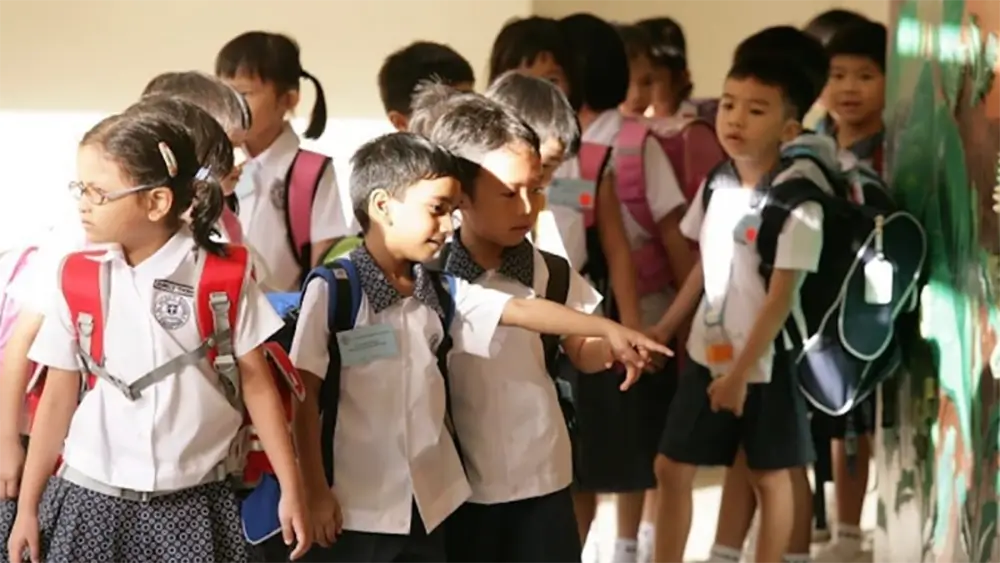
Primary school students in Singapore | SASSY MAMA SG
Unlike the pre-school level, primary school is compulsory for all students aged seven until 12. But international schools in Singapore may accept students at a much earlier age, depending on the curriculum (i.e. Australian, American, British, etc.).
The primary school level is equivalent to the elementary, junior, or grade school level in which children receive primary or elementary education. This stage prepares children for a smooth transition into secondary education and lasts six years (P1 to P6).
Ten core subjects are featured in almost all primary school-level syllabi, namely:
Children can also take a combination of subjects in P5 and P6 based on their performance in P4. But all of them will need to take the PSLE or a placement exam (Primary School Leaving Examination) to assess their performance and determine their ideal learning pathways into secondary education.
There is no failing grade in the PSLE, and the score will be the sum of four subjects, with 4 being the best possible score and 32 being the lowest).
| Achievement Level (AL) | Raw Mark Range |
|---|---|
| 1 | ≥ 90 |
| 2 | 85 – 89 |
| 3 | 80 – 84 |
| 4 | 75 – 79 |
| 5 | 65 – 74 |
| 6 | 45 – 64 |
| 7 | 20 – 44 |
| 8 | < 20 |
Scoring Bands, aka, the Achievement Levels (AL) used to determine a child’s PSLE score | MOE
Your child’s performance will determine their secondary education learning pathways (Express, Academic, and Technical).
Express – A four-year course where students take compulsory subjects like English Language, MTL, Mathematics, Science, and Humanities. They can also take applied subjects like Computing, Drama, Exercise, and Sports Science.
Academic – A four or five-year course where students can progress to junior college, Millennia Institute, Polytechnic, or Institute of Technical Education.
Technical – A four-year course for students that prefer a more hands-on curriculum. Upon completion, they can take specialised courses like Mechanical Design and Automation, Culinary and Restaurant Operations, Retail and e-Commerce, Mobile Web Applications, and the Internet of Things.
Also known as the tertiary or higher education level, the post-secondary stage is divided into various levels: Institute of Technical Education (ITE), polytechnics, public universities, and private universities.
Secondary school graduates can choose from several Post-Secondary Education Institutions (PSEI), depending on their performance in the General Certificate of Education (GCE) examination. After successful completion, they will receive a diploma that will make them eligible for entry into a university or technical college of their choice.
Despite its world-renowned education system, Singapore schools are surprisingly affordable. For instance, many university programs offer grants and scholarships for expat students that wish to complete their undergraduate studies.
| Nationality | 2022 | 2023 |
|---|---|---|
| SCs | $6.50 | No change |
| PRs | $230 | $255 |
| International Students (ASEAN) | $490 | $515 |
| International Students (Non-ASEAN) | $825 | $875 |
Source: MOEFor Singapore Permanent Residents students, primary school monthly school fees are S$255, with Singapore Citizens paying cheaper fees. The Strait Times reported that this was a S$25 increase from the previous year, which the MOE has said is due to a regular review of tuition fees.
As a parent, you can easily include your child’s education in your monthly budget and expect to pay around S$255 to $300 monthly. However, expect higher fees (around S$600) for non-government-aided schools (Independent, Specialised Independent, or Specialised).
| Nationality | 2022 | 2023 |
|---|---|---|
| SCs | $10 | No change |
| PRs | $440 | $500 |
| International Students (ASEAN) | $840 | $2,100 |
| International Students (Non-ASEAN) | $1,600 | $1,750 |
Source: MOEThe fees for secondary school vary, depending on your child’s school. SPRs can generally expect to pay up to $500 in Government and Government-Aided schools. But Independent School fees are generally higher, averaging between S$600 to $1,000.
| Nationality | 2022 | 2023 |
|---|---|---|
| SCs | $13.50 | No change |
| PRs | $520 | $580 |
| International Students (ASEAN) | $1,070 | $1,100 |
| International Students (Non-ASEAN) | $1,950 | $2,100 |
Source: MOEThe government still heavily subsidises tuition fees for the junior college levels in Singapore. The total cost for 18 months’ tuition is around S$243 for SCs and S$9,360 for SPRs.
| Nationality | 2022 | 2023 |
|---|---|---|
| SCs | $3,000 | No change |
| PRs | $6,200 | No change |
| International Students | $11,506 | $11,900 |
Source: Singapore PolytechnicIf your PR child takes the polytechnic route, you can expect to pay an annual fee of around S$6,200 (depending on the university or institution). This totals around S$18,600 for a three-year diploma program. Meanwhile, SCs pay 50% less, around $3,000 yearly (or $9,000 for three years)).
Post-secondary level tuition fees for SPRs may seem steep. But if you want to allow your child to complete their studies in Singapore, it’s highly encouraged that you apply for Singapore citizenship.
Applying to become an SC is open to SPRs residing in the country for at least two years. You can find more information in our Benefits of Singapore Citizenship.
Singapore is a culturally diverse nation with its population able to communicate and understand in various languages. The state has many official languages, like Mandarin, English, Tamil, and Malay. But English is the predominant language, with over 48% of its residents using it.
Therefore, there’s little to worry about regarding the language barrier, especially for your child. English is the primary medium of instruction in Singapore schools, except for subjects like Civics and Mother Tongue Languages.
In universities, English is used primarily for communication and many textbooks, teaching materials, and syllabi are available in English.
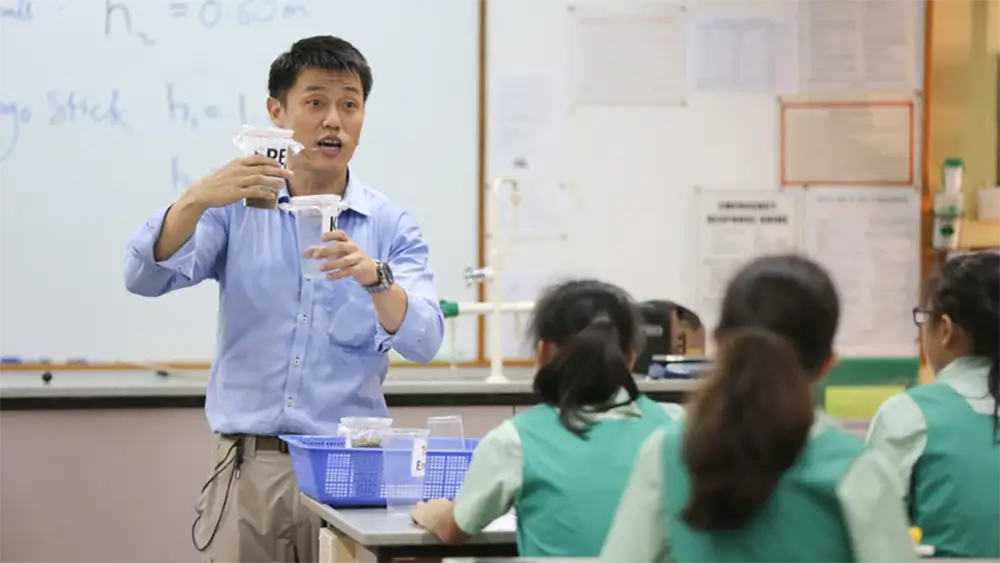
Source: ASIA ONE
Part of what makes Singapore education world-class is the instructors’ or teachers’ training.
Teachers must undergo mandatory training and score in the top 5% before they are allowed to teach in mainstream schools.
The MOE provides continuous training for Singapore teachers through the National Institute of Education (NIE). You can ensure your child will be in safe, professional hands as they navigate Singapore’s education system.
Singapore PRs with tertiary education-level kids will find plenty of educational programs and courses.
Enrolling your kids in top schools like Nanyang Technological University (NTU), for instance, allows them to choose from different undergraduate programs in Business, Education, Humanities, Linguistics, Arts, and many others.
A rigorous education system and internationally recognised qualifications make Singapore a hub for international students.
Graduates have many job prospects and opportunities right after their studies, and it is easy for them to match with employers in Singapore and globally.
Statistics have also shown an increase in the employment rate for these students. Channel News Asia reported that 84% of graduates in 2021 could find permanent, full-time employment after graduation — a staggering hike compared to the measly 69.8% in the previous year.
Singapore is attracting a steady stream of young foreign talents due partly to its quality lifestyle and safe living environment. Its introduction of new work visa rules and employment passes positions itself as a global melting pot for high-earners and achievers from diverse backgrounds.
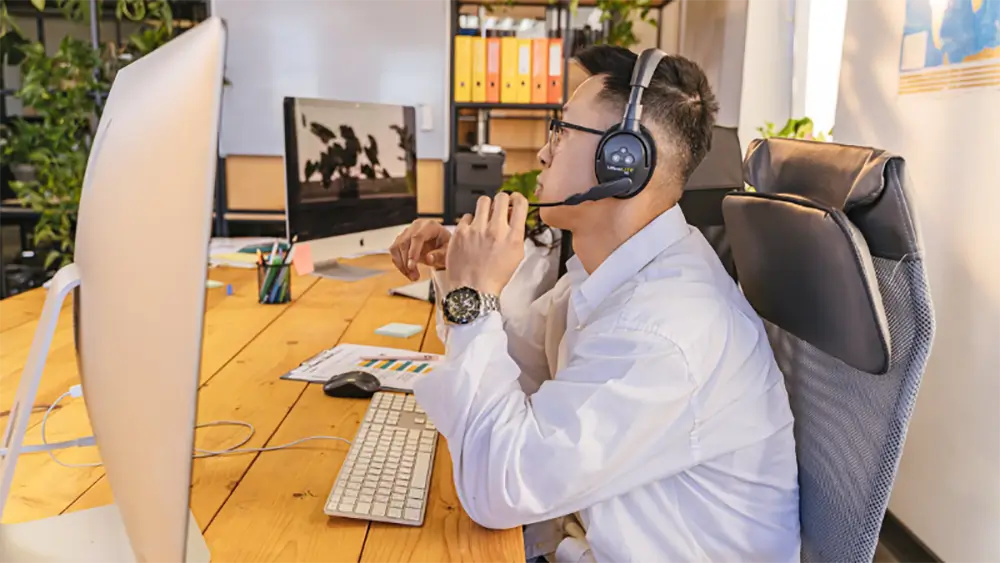
Singapore continually strives to become the go-to destination for skilled talents. If you are a work pass holder, consider applying for permanent residency status, as more and more benefits are available to you and your family.
Your family can benefit from Singapore’s relatively young economy, which has seen the rise of numerous startups and multinational companies. Hence, providing more career paths for fresh graduates and opportunities to contribute to a thriving economy.
Having an internationally recognised curriculum does not come with its drawbacks. For one, Singapore’s academic admissions schemes are highly competitive.
While it is a popular education destination, universities exercise a strict selection process to filter out exemplary students from hundreds of applicants.
Furthermore, there is a quota on the acceptance rate for international students, which may deter your child from enrolling in their desired school or university.
The Singapore government introduced the Tuition Grant Scheme to help students lessen the costs of tertiary education in Singapore. Currently, the scheme is open for diploma and undergraduate students. It is automatically awarded to SCs.
However, should international students (expats and Singapore PRs) wish to receive the grant, they must first apply for a Tuition Grant Agreement, which obliges them to work in Singapore for three years after graduation.
Full-time Singaporean students enrolled in the National University of Singapore will have 100% of their tuition fees waived if they come from low-income households.
This privilege isn’t extended to international students who can only receive a specific sum in financial aid, provided they meet the eligibility criteria.
If your child aspires to study in a private institution, tuition fees are much higher, and you may expect to pay upwards of S$30,000 in total for course fees.
Any student in Singapore’s primary, secondary, or tertiary level faces insurmountable academic pressure from schools and their peers.
It is the price to pay with a highly regarded education system. Each year sees an increase in children seeking psychiatric assistance to cope with the daily academic pressures. The drive to become overachievers may bring more stress and anxiety to children and parents, especially during exam periods.
Much has been written and discussed about Singapore’s internationally recognised education system. Decades of targeted government policies and a focus on the student’s holistic development have developed its academic system into what it is now.
Understanding learning outcomes and pathways are crucial for expats, migrants, and SPRs who want their children to succeed academically and professionally in the country’s education system.

Your child’s education is vital, and it’s not surprising to take time and consider if they will be a good fit for Singapore’s education.
Nevertheless, the Singapore government extends many benefits to student children from SC/PR households. Getting quality education for your child will be fine, especially amidst Lion City’s burgeoning economy and prized quality of living.
And aside from your children being a part of a world-class education system, there are other benefits of Singapore PR such as having the right to secure better job opportunities and having a government pension fund that can also be used to pay for healthcare, housing and investments.
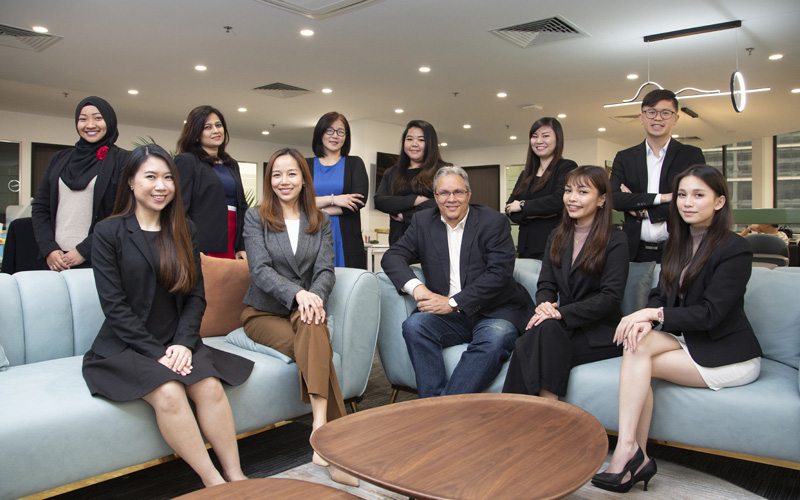
As professional immigration consultants in Singapore, we provide honest assessments to expats who wish to become Singapore Citizens or Permanent Residents. Schedule a free one-on-one consultation with us today!
Yes. Singapore offers free primary school education for all Singapore citizens under the authority of the Ministry of Education. However, miscellaneous fees can go up to S$13 per student.
Differentiated learning pathways are the primary distinguishing factor between Singapore’s education and the world.
With this model, teachers offer students varying learning methods according to their capacity. This model effectively allows them to address each student’s learning needs and outcomes.
Yes, Singapore’s education is challenging and competitive for all intents and purposes. Singapore education is difficult, but the country’s students often rank at the top for subjects such as Maths and Science.
Today Online reports that almost 90% of Singapore undergraduate students found their work and study commitments stressful. The figure was based on a study involving a network of student unions.
It also found that many students desired academic change by making the curriculum more flexible and giving them control over their semestral educational pathways.
Tuition fees for international students and permanent residents in Government and Government-aided schools will increase to S$60 for 2022 and 2023.
Yes. You can apply to the Immigration and Checkpoints Authority (ICA) to obtain a Singapore PR as a student. You must meet eligibility requirements such as being domiciled in Singapore for at least two years and having passed at least one national exam (or being part of the Integrated Program).
Yes, foreign students can get a PR in Singapore.
If you’re a foreign student in Singapore, you may apply for a PR to the Immigration and Checkpoints Authority (ICA). They will consider your application based on your period of residence in Singapore and academic performance in at least one national exam (PSLE, GCE N/O/A levels or the Integrated Programme (IP)).
Please share with us some details about your needs, we will get back to you.